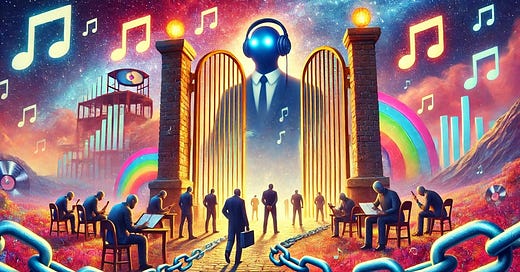In the not-so-distant past, the music industry was a carefully guarded fortress, with record label executives, A&R representatives, and radio programmers serving as the ultimate arbiters of musical success. These gatekeepers wielded immense power, determining which artists would receive airplay, recording contracts, and the crucial promotional support needed to break through to mainstream audiences. Their curated taste and industry connections were the primary pathways to musical stardom.
Today, that paradigm has been completely dismantled by the digital revolution. Streaming platforms, social media, and direct-to-fan distribution channels have obliterated the traditional barriers to entry. While this democratization might seem like an unmitigated positive, the loss of gatekeepers has fundamentally altered the music landscape—and not entirely for the better.
The old system, for all its flaws, maintained a certain quality control. Record labels invested significant resources in artist development, providing professional recording opportunities, marketing expertise, and critical mentorship. A&R professionals weren't merely selecting talent; they were cultivating it, helping artists refine their sound, image, and artistic vision. Their expertise translated raw potential into polished, marketable musical products.
In contrast, today's digital ecosystem is a cacophonous free-for-all. Anyone with a laptop and basic recording software can upload music directly to global platforms. While this accessibility has surfaced incredible talents who might have been previously overlooked, it has also created an overwhelming deluge of mediocre content. The signal-to-noise ratio has dramatically shifted, making it increasingly difficult for listeners to discover genuinely compelling music.
Moreover, the algorithmic curation that has replaced human gatekeepers is fundamentally flawed. Streaming platform recommendations are driven by engagement metrics, not artistic merit. Viral potential and immediate listener reaction have superseded nuanced appreciation of musical craft. An infectious beat or provocative lyrics can generate millions of streams, while more sophisticated, innovative music languishes in obscurity.
The economic model has shifted dramatically as well. Traditional gatekeepers were invested in long-term artist development, understanding that true musical talent often requires patience and strategic cultivation. Today's digital ecosystem rewards immediate, disposable content. Artists are incentivized to create quick, attention-grabbing tracks designed for algorithmic playlists rather than developing a distinctive, evolving artistic voice.
This isn't to romanticize the previous system entirely. The old gatekeepers were notoriously exclusionary, often shutting out diverse voices and innovative sounds that didn't fit narrow commercial templates. The current model has undeniably created opportunities for marginalized artists and global musical cross-pollination.
However, the pendulum has swung too far. Without thoughtful curation, music risks becoming a commodified, algorithmic product—stripped of nuance, depth, and genuine artistic intention. The most successful musicians are increasingly those who understand digital marketing, not necessarily those with the most profound musical gifts.
As listeners, we must become more intentional. We must seek out music beyond algorithmic recommendations, support independent artists, and cultivate our own sophisticated musical palettes. The death of traditional gatekeepers doesn't mean the death of musical quality—but it does mean we must work harder to preserve and celebrate true artistry.
The music industry's future lies not in returning to old models, but in developing more intelligent, human-centered forms of musical discovery and appreciation. Until then, we navigate a landscape where accessibility has come at the cost of curation, and viral potential trumps artistic excellence
.





